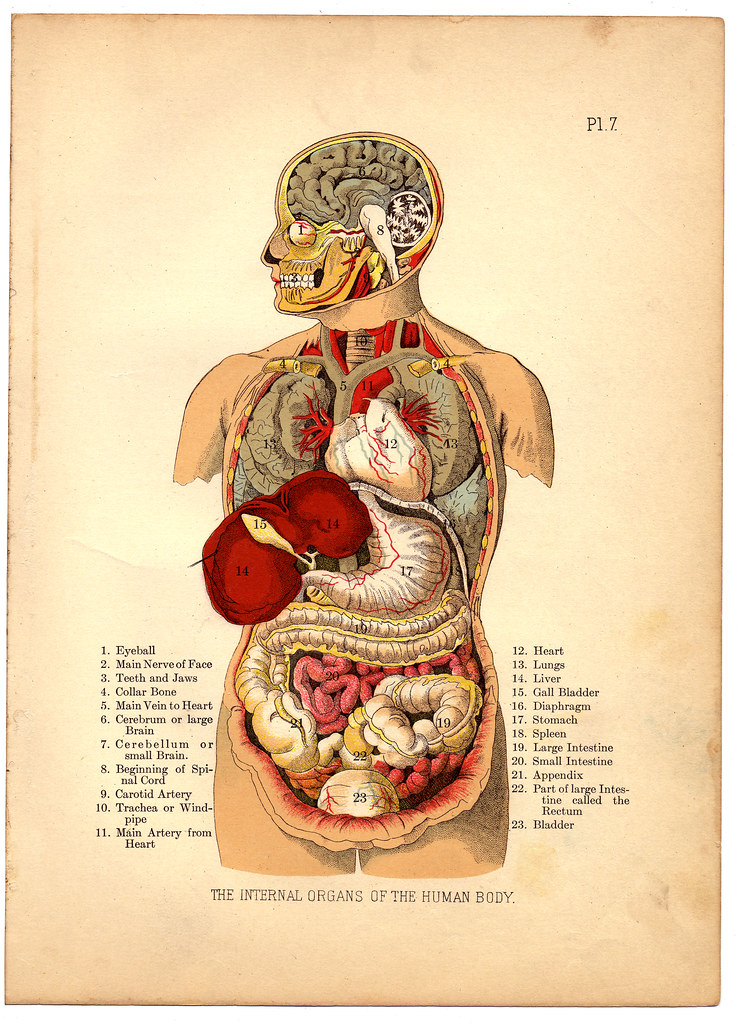We would love to welcome you to train in the East of England where we strive to bring together enthusiastic trainers, excellence in training and our dynamic talented trainees.
We combine incredible curriculum training with unrivalled opportunities in areas such as leadership, teaching, research, global health and simulation. Our trainees succesfully move onto fantastic fellowships or consultant posts, often chosing to remain in our wonderful region. Trainee well-being is core to what we do and we have several measures to support those who are struggling for whatever reason.
Living in the East of England offers beautiful surroundings, affordable homes, superb schools and friendly cities and towns. You will never regret coming to live in our region and we look forward to welcoming you here. International Medical Graduates are incredibly welcome and we will work hard to help you settle in and succeed.Not sure what area to train in after foundation - we offer novel Clinical Development Fellowships to help you figure it out, whilst still developing your C.V. in preparation for training program application.
Below are some of the common questions regarding our various Schools of Medical Training, reviews from some of our trainees and an introduction to our Heads of Schools.
Training Program
How many years is the training program?
(1+1)
Is the training run through or decoupled?
Run through (though can enter at F2)
Which units in the East of England can I be trained in?
All of the acute trusts and mental health trusts and some GP practices
Are there more localized Sub-rotations to avoid long commutes?
Yes, all of the posts are localised to a trust per year, although the community placements may be at GP or mental health trust for 4 months. Between the F1 and F2, posts in EBH FS predominantly stay in the same trust, whereas approx. 3/4 of EAFS rotate trusts between a teaching hospital and DGH between F1 and F2.
Recruitment
How is recruitment organized?
National recruitment through ORIEL
Induction
What induction program is there into training in the region?
At F1 the professional practice week in the acute trust, including shadowing period paid before your post commences. For overseas doctor, an additional bespoke welcome to the NHS programme.
Curriculum Teaching & Study Leave
How is the regional teaching program structured?
We follow a 60 hours taught programme, with a core 30 hours of simulation, sub-regional teaching and local teaching, and a 30 hours trainee choice which is essentially predominantly local with simulation and subregional available.
How many days of study leave do I get?
15 days [90 hours] in F1 in which 60 hours is the taught programme, additional 3 hours are e-learning and 12 hours are ALS . In F2, again 60 hours [10 days] is taught programme, 5 days for a taster and then 15 potential days for aspirational leave.
Simulation Training
What opportunities are there for simulation training in the region?
We offer all trainees a full day of hi fidelity simulation and a minimum of a half day of supervised VR simulation. Trainees can choose to increase this in their non core 60 hours, and we suggest 3 days of sim training. Non supervised VR simulation is available with booking at trainees discretion.
Exams
What exams will I have to sit during my training? Is there any preparation organised in the region?
PSA if not passed at medical school. ALS.
We provide SCRIPT e-learning support both for prescribing and specifically PSA.
Fellowships & Sub-speclalty training
What Sub-specialty / fellowship training opportunities are there in the region?
This is the foundation programme, but we have some priority programmes that are targeted at specialties, and include additional training opportunities. these are in GP/ mental health / paediatrics / pre hospital care.
Research
What research opportunities are there in the region? Do you support Out Of Program Research (OOPR)?
We have academic programmes in research at CATO and NATO, and educational academics with educational research at 3 HEI.
OOPR is not supported during foundation, exceptional circumstances only for TOFP please see the website.
Global Health
Is there scope for work overseas during my training?
No, but we are developing the option to stream some of our programmes towards readiness for an F3 global health post foundation.
More information
Where can I go for more information?
https://heeoe.hee.nhs.uk/foundation
What are the top 3 reasons for training in the East of England
- We prioritise your education with our innovative 60 hours taught programme, including VR access
- We support our trainees, providing a friendly ear as you start in medicine
- We offer more focussed support for those with health, caring or other responsibilities
If Medicine was a car industry, which car would represent the Foundation Program and why?
A supermini. We are small, nippy, great as a starter car and also reliable. You will reach your destination.

How many years is the training program?
Anaesthetics: 7 or 8 with ACCS
ITU: single CCT 7-8, dual 8.5
Is the training run through or decoupled?
Decoupled
Which units in the East of England can I be trained in?
All
Are there more localized Sub-rotations to avoid long commutes?
Yes
Recruitment
How is recruitment organized?
Centrally
Induction
What induction program is there into training in the region?
All attend an induction day at start of CT1, there is local trust departmental induction for all CTs and STs at the start of any rotation in a new trust at any stage of training program, written information also circulated from the school as well as local trusts
Curriculum Teaching & Study Leave
How is the regional teaching program structured?
Core: held monthly in south, middle and Norwich; trainees can choose
Higher anaesthetics: monthly, same theme in two locations trainees choose, ICM alternate monthly one location scattered around the region
How many days of study leave do I get?
30
Simulation Training
What opportunities are there for simulation training in the region?
Lots!
Exams
What exams will I have to sit during my training? Is there any preparation organised in the region?
Part 1 and part 2 FRCA, FFICM at end of ICM for ICM only
Lots of preparation for all elements of the exam
Fellowships & Sub-speclalty training
What Sub-specialty / fellowship training opportunities are there in the region?
Lots
Research
What research opportunities are there in the region? Do you support Out Of Program Research (OOPR)?
ACFs starting at higher training from CUH, Anaesthetics has a recognised research year in the program for 1-2 trainees at any one time at ST5 or 6.
We actively support OOPR opportunities.
Global Health
Is there scope for work overseas during my training?
Lots
More information
Where can I go for more information?
https://heeoe.hee.nhs.uk/anaesthesia

Training Program
How many years is the training program?
3
Is the training run through or decoupled?
Please see the Orthodontic Specialist training pages on the HEE East of England website for full details.
https://heeoe.hee.nhs.uk/dental
Which units in the East of England can I be trained in?
Please see the Orthodontic Specialist training pages on the HEE East of England website for full details.
https://heeoe.hee.nhs.uk/dental
Are there more localized Sub-rotations to avoid long commutes?
Please see the Orthodontic Specialist training pages on the HEE East of England website for full details.
https://heeoe.hee.nhs.uk/dental
Recruitment
How is recruitment organized?
Via national Recruitment, currently run by HEE North East. Deadlines and full details on the COPDEND website
Induction
What induction program is there into training in the region?
ST1-ST3 About 2 weeks introductory course at the London teaching hospitals part of the rotations. Local hospital inductions.
ST4-ST5 post-CCST local hospital inductions
https://www.copdend.org/postgraduate-training/national-recruitment-for-s...
Curriculum Teaching & Study Leave
How is the regional teaching program structured?
ST1-ST3
Weekly half-day lecture programme based at Royal London Hospital year 1. Alternate week lecture programme at Guy’s hospital year 2&3. Seminars, and clinical teaching at the London teaching hospitals and the hospitals in east of England, details vary depending upon the post.
ST4-ST5 post CCST
Attendance at regional and national courses to acquire the additional competencies above ST3 level.
How many days of study leave do I get?
ST1-ST3
Lecture programme as above. 1 day of dedicated study time to complete higher degree. Additional study leave for key approved conferences and courses
ST4-ST5 post CCST
Standard amount in STR contract
Simulation Training
What opportunities are there for simulation training in the region?
Not applicable to specialty
Exams
What exams will I have to sit during my training? Is there any preparation organised in the region?
MOrth of one of the Royal Colleges for ST1-ST3 posts
MClinDent/MSc/DClinDen for ST1-ST3 posts. Which degree is taken depends upon the London teaching hospital that the post rotates to.
Intercollegiate FDS(Ortho) for the ST4-ST5 post-CCST posts
Lots of preparation for all exams formally in revision courses and informally with consultants who do mock exam preparation in each unit.
Fellowships & Sub-speclalty training
What Sub-specialty / fellowship training opportunities are there in the region?
Not applicable
Research
What research opportunities are there in the region? Do you support Out Of Program Research (OOPR)?
Doing a higher degree with research component is a mandatory part of the ST1-ST3 trainng in this specialty and is undertaken concurrently with STR training.
Global Health
Is there scope for work overseas during my training?
No
More information
Where can I go for more information
Please see the Orthodontic Specialist training pages on the HEE East of England website for full details.
https://heeoe.hee.nhs.uk/dental
British orthodontic Society website
COPDEND website
What are the top 3 reasons for training in the East of England
- Good training units in modern departments with high consultant trainer to trainee ratio
- Good rotation links to London teaching hospitals give experience in a different setting, interaction with a larger group of peers and opportunities to undertake publishable research during study for the higher degree
- Relatively small number of trainees means that supervisors and TPD know who you are and are very approachable to help with problems.
If Medicine was a car industry, which car would represent your specialty and why?
Not one of the flashy show-off ones which I bet many of the other specialties picked! Pick any car that you think is assured and quietly self-confident and great to drive without showing off a mid-life crisis.

Training Program
How many years is the training program?
6
Is the training run through or decoupled?
Run through
Which units in the East of England can I be trained in?
16 Trusts, including 1 Major Trauma Centre (Addenbrookes)
Are there more localized Sub-rotations to avoid long commutes?
East - Norwich, Ipswich, Great Yarmouth, King's Lynn;
Essex - Southend, Colchester, Chelsmford, Basildon, Harlow;
South - Watford, Luton, Stevenage;
North - Bury St Edmunds, Peterborough, Bedford
Recruitment
How is recruitment organized?
National through London for ACCS, Yorks & Humber for ST3/DRE-EM/HST
Induction
What induction program is there into training in the region?
First regular regional training day set aside for induction
Curriculum Teaching & Study Leave
How is the regional teaching program structured?
Monthly regional training days for each level. Additional region based training provided.
How many days of study leave do I get?
30
Simulation Training
What opportunities are there for simulation training in the region?
Funded placement on ACCS simulation day for all ACCS ST1. ST3-6 simualtion courses also provided. Simulation included within monthly regional training for HSTs.
Exams
What exams will I have to sit during my training? Is there any preparation organised in the region?
FRCEM all parts - primary and intermediate by end of ST3, final critical appraisal, QIP, SAQ and OSCE by ST6.
All parts of the exam are covered by regional exam prep courses.
Fellowships & Sub-speclalty training
What Sub-specialty / fellowship training opportunities are there in the region?
PHEM, PEM
Research
What research opportunities are there in the region? Do you support Out Of Program Research (OOPR)?
Academic training is available based in Addenbrookes
We do support OOPR opportunities
Global Health
Is there scope for work overseas during my training?
East of England partners Global Health Fellowships placements to rural South Africa for one year between ST3 and ST4
More information
Where can I go for more information?
https://heeoe.hee.nhs.uk/emergency_medicine
What are the top 3 reasons for training in the East of England
- Support for flexible careers
- Thorough curriculum coverage through regional training
- Wide range of hospital environments from urban to rural
If Medicine was a car industry, which car would represent Emergency Medicine and why?
Land Rover Defender. It's a classy reliable workhorse that stands out without needing to look flashy. Goes anywhere, copes with all different situations including extreme battlefield, lots of grunt but still cruises nicely at speed.

Training Program
How many years is the training program?
3
Is the training run through or decoupled?
Run through
Which units in the East of England can I be trained in?
GP training programmes are based around 18 different areas in the East of England. All your hospital and general practice placements are all generally within the same geographical locality for all 3 years
Are there more localized Sub-rotations to avoid long commutes?
Not needed as all posts are generally in the same geographical area anyway.
Recruitment
How is recruitment organized?
It is a national process organised by the General Practice National Recruitment Office (GPNRO). Please see https://gprecruitment.hee.nhs.uk/
Induction
What induction program is there into training in the region?
Each training programme has a local induction and the School of General Practice organises another induction day in each of our 6 main county areas. We have a GP School induction pack and individual programmes and general practices also tend to have their own induction packs. When you start in a GP placement, you can generally expect to have at least 1-2 weeks where you shadow various members of the team so that you become familiar with how the practice works, local referral processes and how fantastic primary care is!
Curriculum Teaching & Study Leave
How is the regional teaching program structured?
Each of the 18 programmes organise a regular half day release programme which generally meets for 30 weeks of the year. We also have an extensive series of regional study days that are free of charge to our trainees and cover a range of topics, including exam preparation.
How many days of study leave do I get?
30 days a year, which includes the half day release programme for 15 days.
Simulation Training
What opportunities are there for simulation training in the region?
You will regularly do simulated consultations to help you develop your clinical and communication skills. You will also have access to simulation labs for examination and emergency care simulations
Exams
What exams will I have to sit during my training? Is there any preparation organised in the region?
AKT = Applied Knowledge Test. This is an MCQ style exam. CSA = Consultation Skills Assessment. This is held in London at the RCGP headquarters and involves 13 simulated consultations where your data gathering, clinical management and interpersonal skills are assessed
All the half day release programmes will help with preparation for both AKT and CSA. And the GP trainers in your practice placements will also be a great resource. We run clinical skills courses for ST1 and ST2 trainees as well as CSA preparation courses for ST3 trainees. We are also just about to purchase the Fourteen Fish AKT online preparation package for all our GP trainees.
Fellowships & Sub-speclalty training
What Sub-specialty / fellowship training opportunities are there in the region?
We have 6 ST4 Fellowships in Educational Leadership and Quality Improvement
Research
What research opportunities are there in the region? Do you support Out Of Program Research (OOPR)?
We have a number of academic trainees who are recruited to a 4 year training programme so that they spend an additional year focussed on their academic work and research.
Global Health
Is there scope for work overseas during my training?
Yes, we actively promote the Global Health Fellowships whereby trainees work in South Africa for a year between ST2 and ST3. In fact, we were one of the first regions to introduce this idea!
More information
Where can I go for more information?
https://heeoe.hee.nhs.uk/general_practice/interested-gp-training.
Please do contact any of our Training Programme Directors as well. Their contact details can be found on this website and they can often help find a taster placement for you in a GP practice.
What are the top 3 reasons for training in the East of England?
- It is a wonderful place to live and work, both during your training and once you are qualified.
- We have an amazing community of GP educators
- We really want to know what you think will help you.
If Medicine was a car industry, which car would represent General Practice and why?
The London black cab - used by everyone, efficient, comfortable and a true British icon. We also move with the times whilst planning for all eventualities - now that lots of London cabs are electric, with a backup petrol generator for emergencies.. Photo sent by email as I couldn't paste it in

Training Program
How many years is the training program?
2-3 years (depending on your future choice of Specialty). https://www.jrcptb.org.uk/internal-medicine
Is the training run through or decoupled?
Decoupled - after 2-3 years of IMT training you have to reapply for Higher Specialist Training (exception is Academic Training)
Which units in the East of England can I be trained in?
All East of England Trusts support Internal Medicine training.
Are there more localized Sub-rotations to avoid long commutes?
Yes. About half of the rotations rotate around the 2 teaching hospitals (Cambridge and Norwich) with the other half being entirely contained within the same Trust
Recruitment
How is recruitment organized?
Nationally although we do 3-4 local interviews days per year so trainees in our region usually get interviewed in Cambridge.
Induction
What induction program is there into training in the region?
Local and Regional Induction
Curriculum Teaching & Study Leave
How is the regional teaching program structured?
4 regional teaching days a year. A simulation and procedural skills courses in the first 2 years. Regional PACES and MRCP Part 1 teaching and £1000 pounds per year per trainee for commercial MRCP courses
How many days of study leave do I get?
up to 30
Simulation Training
What opportunities are there for simulation training in the region?
Procedural courses in the first year. Human factors courses during the first 2 years
Exams
What exams will I have to sit during my training? Is there any preparation organised in the region?
MRCP part 1, part 2 and PACES – yes regional Part 1 and PACES courses and £1000 pounds per year per trainee for commercial MRCP courses
Fellowships & Sub-speclalty training
What Sub-specialty / fellowship training opportunities are there in the region?
IMT is a "core" program for before you start to specialise beyond that. Re-application during IMT 2 or 3 is required for that.
Research
What research opportunities are there in the region? Do you support Out Of Program Research (OOPR)?
We have a large and active ACF programme recruited separately to national IMT recruitment in Cambridge and Norwich. Successful candidates still need to be deemed appointable in national IMT recruitment.
OOPRs cannot be taken in the first or last years of the programme so usually cannot be taken in the IM1 and IM2 years. However, it is possible on occasion for exceptions to be made.
More information
Where can I go for more information
Lots of information on the HEE EoE CMT website regarding our training days, rotations, ARCP preparation, LTFT training, study leave, professional support and well-being amongst other things. The TPDs, Jasmine Patel (Jasmine.Patel@ipswichhospital.nhs.uk and Colin Mason colin.mason1@addenbrookes.nhs.uk are always happy to be contacted by potential applicants – no query too small!).
Website : https://heeoe.hee.nhs.uk/medicine
What are the top 3 reasons for training in the East of England
- High quality teaching delivered from international centres of excellence
- Regional mock MRCP Part 1 and PACES teaching and financial support (£1000 pounds per year for trainees to attend commercial PACES courses)
- Easily commutable and self-contained rotations

Training Program
How many years is the training program?
7
Is the training run through or decoupled?
Run through (although there is a small entry at ST3.
Which units in the East of England can I be trained in?
All 17 teaching hospitals and DGHs
Are there more localized Sub-rotations to avoid long commutes?
No - our trainees have previously said they do not want this. They are able to opt to stay in one geographical area and we aim to avoid any commute longer than an hour unless the trainee requests a specific hospital.
Recruitment
How is recruitment organized?
Nationally- currently in Manchester. Recruitment opens in November.
Induction
What induction program is there into training in the region?
Deanery induction at the Deanery site in August
Curriculum Teaching & Study Leave
How is the regional teaching program structured?
Teaching organised throughout the region. We aim to provide as many of the compulsory courses as possible locally. There is a compulsory Trainee prize day once a year.
How many days of study leave do I get?
30
Simulation Training
What opportunities are there for simulation training in the region?
Most hospitals will have some simulation facilities and run obstetric emergency (PROMPT) courses. A number of the deanery teaching courses are simulation based. At a more senior level we also offer cadaveric training.
Exams
What exams will I have to sit during my training? Is there any preparation organised in the region?
Part 1 (by end of ST2), Part 2 and 3 by end of ST5
Yes preparation is organised - local teaching and regional courses for all 3
Fellowships & Sub-speclalty training
What Sub-specialty / fellowship training opportunities are there in the region?
Subspecialty training in Maternal fetal medicine, reproductive medicine and urogynaecology in Cambridge. Gynae oncology in Cambridge and Norwich. All posts are nationally advertised and trainees from our region have a high success rate in appointments to posts both in and out of the Deanery
Research
What research opportunities are there in the region? Do you support Out Of Program Research (OOPR)?
ACF in both Cambridge and Norwich. ACL post in Cambridge. Most hospitals are involved in multicentre trials which trainees can be involved in and there are more formal research opportunities mainly in Cambridge and Norwich. The School has an Associate TPD with a brief to support academic training and trainees in the Region.
Yes OOPRs are supported as long as the Research is aimed to lead to a higher degree and is properly funded. Support in this is obtained from the ATPD
Global Health
Is there scope for work overseas during my training?
Yes- we support ST1-2 trainees to spend a year overseas as a Global Health Fellow and are developing programmes for short term placements overseas. We also support OOPE for trainees wishing to be involved in such things as VSO.
More information
Where can I go for more information?
www.heeoe.nhs.uk/obstetrics_gynaecology.
Information on training in the east of England. www.rcog.org.uk/en/careers-training. Information on the UK training programme and career progression
What are the top 3 reasons for training in the East of England?
- Currently we are 4th in the Uk for overall quality of training with Southend being top in the UK.
- We offer a flexible training programme that tries to maximise opportunities for all trainees and focusing on quality of life.
- We encourage trainees to develop other interests through the use of OOPE and LTFT working to produce well rounded employable Consultants.

How many years is the training program?
7 years (ST1-7)
Is the training run through or decoupled?
Run through (ST1-2 general; ST3+ subspecialty focused)
Which units in the East of England can I be trained in?
Main Teaching Units: Cambridge & Norwich
11 DGH’s divided as below into sub-rotations
Are there more localized Sub-rotations to avoid long commutes?
West : Cambridge, Luton, Huntingdon, Peterborough
East : Norwich, Bury St.Edmunds, Ipswich & Great Yarmouth
South : Cambridge, Watford, Stevenage, Chelmsford, Colchester, Southend
RECRUITMENT
How is recruitment organized?
National recruitment is organized through the Severn Deanery and opens every November, interviews Jan / Feb.
http://www.severndeanery.nhs.uk/recruitment/
INDUCTION
What induction program is there into training in the region?
Regional Norwich Induction week in August for all new EoE trainees
Simulation training on EyESi in first few months
CURRICULUM TEACHING & STUDY LEAVE
How is the regional teaching program structured?
Top rated teaching program in the country (GMC survey)
10 Core training days : covers curriculum; talks in morning and OSCEs in afternoon, usually with patients. Satisfaction rating >9.6/10
20+ Additional Regional teaching days : exam preparation, simulation, governance, professional, research and academic meetings
Weekly 1/2 day teaching at Norwich & monthly at Cambridge
https://heeoe.hee.nhs.uk/ophth/teaching_program
How many days of study leave do I get?
30 total
10 used to attend core training days
20 remaining to attend additional regional training days, national / international meetings / exam study
SIMULATION TRAINING
What opportunities are there for simulation training in the region?
3 x Eyesi cataract simulators: Great Yarmouth, Luton, Cambridge
Cataract / Complications simulation day
Trabeculectomy simulation day
Laser simulation day
Cadaveric Strabismus training & Oculoplastics training
Trauma Simulation training day
https://heeoe.hee.nhs.uk/ophth/simulation
EXAMS
What exams will I have to sit during my training? Is there any preparation organised in the region?
Part 1: completed by end of ST2 (can be done prior to entry)
Refraction exam: completed by end of ST3
Part 2 written and clinical (viva/OSCE): ideally completed by ST5-6
We run regional exam preparation days for Part 2 and Refraction exam.
https://heeoe.hee.nhs.uk/ophthalmology/exam-preparation
Also our core training days are exam orientated with OSCE stations.
FELLOWSHIPS / SUBSPECIALTY TRAINING
What Sub-specialty / fellowship training opportunities are there in the region?
We have pre-CCT final year fellowships (known as Trainee Selected Components TSCs) in all subspecialties.
There are also ample post CCT fellowships as well.
RESEARCH
What research opportunities are there in the region? Do you support Out Of Program Research (OOPR)?
ST3+ trainees are given 1 session a week for Research (in addition to standard ST1-7: 1 session for audit/admin and session for teaching).
We encourage and support OOPR applications in and outside our region. Best time to consider this is between ST2-3 or after final Part 2 exam
We have two professorial units and multiple other research opportunities as well as a trainee led research network linked to NIHR.
https://heeoe.hee.nhs.uk/ophthalmology/research
GLOBAL HEALTH
Is there scope for work overseas during my training?
We support trainees who want to consider going abroad for global health projects and OOPR opportunities.
We are currently developing a formal global health ophthalmology fellowship post too.
Where can I go for more information?
https://heeoe.hee.nhs.uk/ophthalmology
We have several events (including the induction week) that we welcome prospective trainees to. We can also arrange taster weeks in any of our units. Contacts found on the website above.
What are the top 3 reasons for training in the East of England?
- TOP of GMC Trainee Survey (2018 & 2017): rated highest average across all 18 domains
- TOP Exam results: We have had >90% success over last 2 years at Part 2 clinical exams
- TOP Regional Training (2018,19): 1st out of 17 regions in the whole UK
If Medicine was a car industry, which car would represent Ophthalmology and why?
The Aston Martin. We are the cool, sleek top end of the luxury market with great balance between functional driving (work) and enjoyment (well-being). Amazing and challenging technology at the heart of what we do, awesome user and passenger (patient) experience (satisfaction). We don’t get taken out late at night and are the epitomy of speed, calmness and in control of our driving. Top end research avenues, great travel opportunities (for the altruistic) and most of all a lot of fun. Hard to get one (training number) but once you have the keys, you never want another car.

Training Program
How many years is the training program?
8
Is the training run through or decoupled?
Run through
Which units in the East of England can I be trained in?
All 17
Are there more localized Sub-rotations to avoid long commutes?
Yes usually based in Luton Norwich or Cambridge, training rotations are organised to minimise travel
Recruitment
How is recruitment organized?
Nationally
Induction
What induction program is there into training in the region?
An annual regional training event for all new starters in HEE EOE
Curriculum Teaching & Study Leave
How is the regional teaching program structured?
Regional programmes for level 1 and level 2/3 trainees funded from School of Paediatrics budget
How many days of study leave do I get?
30
Simulation Training
What opportunities are there for simulation training in the region?
Regional programmes funded from School of Paediatrics budget
Exams
What exams will I have to sit during my training? Is there any preparation organised in the region?
MRCPCH
Regional preparation programmes funded from School of Paediatrics
Fellowships & Sub-speclalty training
What Sub-specialty / fellowship training opportunities are there in the region?
SPIN & GRID
Research
What research opportunities are there in the region? Do you support Out Of Program Research (OOPR)?
Mostly centred in Cambridge with academic department but programmes have been established in UEA / NNUH
OOPR supported for PhD
Global Health
Is there scope for work overseas during my training?
Yes - 1st national Paediatric Global Health Fellowship program (trainee currently deployed in Eastern Cape)
More information
Where can I go for more information?
https://heeoe.hee.nhs.uk/paediatrics
What are the top 3 reasons for training in the East of England?
- Excellent Training
- Camaraderie
- Personalised training
If Medicine was a car industry, which car would represent Paediatrics and why?
Golf - reliable, evolving with innovation, different models available

Training Program
How many years is the training program?
6 years : 3 years core training, mostly 3 years higher training but some sub-specialties vary and dual training available.
Is the training run through or decoupled?
Mostly decoupled but run-through for (i) academic clinical fellowship posts and (ii) CAMH run-through (currently a pilot programme)
Which units in the East of England can I be trained in?
Core training and some higher training schemes within Trusts: Hertfordshire, Bedfordshire/Luton, Cambridgeshire, Essex, Norfolk/Suffolk. Some higher training schemes more regional
Are there more localized Sub-rotations to avoid long commutes?
Regional higher training schemes have sub-units and flexibility to reduce commutes
Recruitment
How is recruitment organized?
National recruitment for entry in August and February for most specialties
Induction
What induction program is there into training in the region?
Local induction programmes organised by each Trust
Curriculum Teaching & Study Leave
How is the regional teaching program structured?
Regional teaching covers most essential requirements. MRCPsych courses run in Herts, Cambridge and Essex.
How many days of study leave do I get?
30
Simulation Training
What opportunities are there for simulation training in the region?
Use of actors for simulated clinical encounters in regional training programme
Exams
What exams will I have to sit during my training? Is there any preparation organised in the region?
In core training: MRCPsych Paper A, Paper B, and CASC exam (a clinical OSCE exam)
Both MRCPsych courses and regional training for the clinical component which should be attended through core training. Also communication skills teaching particularly to support International Medical Graduates
Fellowships & Sub-speclalty training
What Sub-specialty / fellowship training opportunities are there in the region?
Subspecialty higher training in Liaison, Substance misuse, Perinatal and other subspecialties
Research
What research opportunities are there in the region? Do you support Out Of Program Research (OOPR)?
Regional integrated academic training (In Cambridge and Norwich at present) through ACF and CL programmes. Also higher trainees are entitled to 1 day per week for special interest sessions that can include research.
Yes OOPRs are supported, we have many opportunities for trainees wanting to take time out of training for research or other experiences.
Global Health
Is there scope for work overseas during my training?
Limited scope for international work at present
More information
Where can I go for more information?
See our Deanery website ( https://heeoe.hee.nhs.uk/psychiatry ) or contact the Head of School
What are the top 3 reasons for training in the East of England
- High quality of life, with urban and rural living allowing access to big cities and beautiful countryside and coast.
- Excellent training programmes with dynamic educators
- Vibrant academic programmes to help you achieve your potential
If Medicine was a car industry, which car would represent Psychiatry and why?
Volkswagen Beetle: Iconic, fashionable, internationally recognizable, upbeat and practical. There are more expensive and flashier cars out there, but this one is guaranteed to raise a smile and be a talking point.

Training Program
How many years is the training program?
4 plus academic year
Is the training run through or decoupled?
Run through
Which units in the East of England can I be trained in?
Local authorities, PHE teams, NHSE teams, CCGs, 2 acutes, and others
Are there more localized Sub-rotations to avoid long commutes?
We don't strictly have sub rotations but we have split EoE into north and south zones
Recruitment
How is recruitment organized?
Nationally
Induction
What induction program is there into training in the region?
2 days regionally, staggered induction over 2 months in first placement
Curriculum Teaching & Study Leave
How is the regional teaching program structured?
Organised by ST year group
How many days of study leave do I get?
30
Simulation Training
What opportunities are there for simulation training in the region?
Opportunities to practice PH skills in scenarios in preparation for part B
Exams
What exams will I have to sit during my training? Is there any preparation organised in the region?
Parts A and B of MFPH
Preparation is a mixed of cohort learning and practice and invidually-tailored learning in placements.
Fellowships & Sub-speclalty training
What Sub-specialty / fellowship training opportunities are there in the region?
Some registrars pursue a PhD in preparation for an academic career; some focus on health protection or healthcare public health.
Research
What research opportunities are there in the region? Do you support Out Of Program Research (OOPR)?
There are placements at UEA, UC, MRC. OOPRs are supported.
Global Health
Is there scope for work overseas during my training?
Not routine; can be accommodated.
More information
Where can I go for more information?
Regional Website : https://heeoe.hee.nhs.uk/public_health
National Information : https://www.fph.org.uk/
What are the top 3 reasons for training in the East of England?
- High standard of training
- Excellent range of opportunities
- Great quality of life outside training
If Medicine was a car industry, which car would represent Public Health and why?
We Public Health types prefer to use public transport and active travel...but perhaps an electric car - always using the best available technology and information, always aiming to improve, always considering the wider implications for the population

Training Program
How many years is the training program?
The standard clinical radiology training program is 5 years. A couple of sub-specialities (interventional radiology and interventional neuroradiology have a ST6 year.
Is the training run through or decoupled?
Run through
Which units in the East of England can I be trained in?
There are three generally separate schemes in the region, from north to south, Norwich, Cambridge and EBH (Essex, Bedfordshire and Hertfordshire). There is also a ST posts at Peterborough City Hospital, overseen by the Cambridge training program director but currently running as a stand alone site.
Are there more localized Sub-rotations to avoid long commutes?
The EBH scheme tends to be based at single Trusts for the whole five years, as are the Peterborough trainees. Cambridge trainees are based at Addenbrooke's Hospital (or the now co-located Royal Papworth Hospital) for 4.5 years of the 5 year program with two 3-month attachments elsewhere (currently West Suffolk Hospital and Luton and Dunstable Hospital). Norwich trainees are at the Norfolk & Norwich University Hospital (NNUH) for 4 or the 5 years with two 6-months placements elsewhere, one in ST2 and one in ST4. There is some flexibility in rotation site, but typically the James Paget (Great Yarmouth), the QEH (King's Lynn) and Ipswich.
Recruitment
How is recruitment organized?
Nationally through London Deanery, opening in November with interviews in the Spring.
Induction
What induction program is there into training in the region?
Each of the programs has it's own local induction.
Curriculum Teaching & Study Leave
How is the regional teaching program structured?
Each of the schemes have their own local teaching program. This is usually a half-day per week (EBH, Cambridge). The radiology academy tends to have longer structured teaching periods. In addition there are regional teaching days (e.g. paediatric imaging, interventional radiology simulation teaching, exam preparation run at different sites and open to all.
How many days of study leave do I get?
Local teaching days are built into the rota. Standard 30 day allowance for external course/conferences.
Simulation Training
What opportunities are there for simulation training in the region?
There are ultrasound simulators available in Essex and Norwich. Vascular interventional simulator at the Norwich radiology academy with hands-on sessions open to all EoE trainees.
Exams
What exams will I have to sit during my training? Is there any preparation organised in the region?
There is the Part 1 FRCR exam taken in March of ST1 (physics and anatomy). The final FRCR exam is in two parts; A (single best answer written papers), typically taken near the end of ST3 and B (rapid reporting, written long cases, viva) typically taken from the beginning of ST4.
There are formal teaching program as above, plus pre-exam mocks in Norwich and EBH. All sites also have extensive consultant delivered pre-exam tutorial teaching sessions.
Fellowships & Sub-speclalty training
What Sub-specialty / fellowship training opportunities are there in the region?
All radiological subspecialities are available in the East of England. Interventional neuroradiology is only available at the Addenbrooke's site. There are MRI and breast fellowships in Cambridge with ST6 posts in interventional radiology. There are chest and cardiac imaging fellowships at the Royal Papworth Hospital. Breast, musculoskeletal imaging and (ST6) interventional radiology fellowships are available in Norwich.
Research
What research opportunities are there in the region? Do you support Out Of Program Research (OOPR)?
There is a university department of radiology in Cambridge headed by Professor Fiona Gilbert with PhD opportunities. There is a research active department in Norwich with a track record of MD supervision. Clinical based projects at all site. EBH are keen to build research partnerships with the recently opening Essex Medical School.
OOPRs are supported.
Global Health
Is there scope for work overseas during my training?
There is no formal overseas link. Trainees have taken overseas electives following discussion with training program directors.
More information
Where can I go for more information?
The HEE east of England radiology page (https://heeoe.hee.nhs.uk/radiology).
Royal College of Radiologist website (https://www.rcr.ac.uk/clinical-radiology/specialty-training).
The Norwich Radiology Academy website (www.norwichradiologyacademy.co.uk).
What are the top 3 reasons for training in the East of England
- High level of consultant supervision and contact time
- Three independent but inter-related training programs which make the geography more manageable whilst having regional resources available
- Choice of living locations - historic cities and towns, villages, London borders.
If Medicine was a car industry, which car would represent Radiology and why?
I don't know, but the car would have tinted windows to keep the light level down, a great dashboard system display, comfy seats, an innovative tool kit in the boot (and ideally a coffee machine in the front).

Training Program
How many years is the training program?
6
Is the training run through or decoupled?
Decoupled
Which units in the East of England can I be trained in?
Addenbrookes, Basildon, Bedford, Broomfield, Colchester, Hinchingbrooke, Harlow, Ipswich, James Paget, King's Lynn, Lister, Luton, NNUH, Peterborough, Southend, Watford, West Suffolk
Are there more localized Sub-rotations to avoid long commutes?
Not specifically but personal preferences considered prior to allocations
Recruitment
How is recruitment organized?
National
Induction
What induction program is there into training in the region?
Single day prior to starting in region and then local with regular 7 days throughout year.
Curriculum Teaching & Study Leave
How is the regional teaching program structured?
7 days at Norfolk and Norwich, Addenbrookes and Luton
How many days of study leave do I get?
30
Simulation Training
What opportunities are there for simulation training in the region?
Regular days for each sub-speciality, including regular opportunites at the Evelyn Centre
Exams
What exams will I have to sit during my training? Is there any preparation organised in the region?
MRCS, CCT
Exam Preparation is covered in training days
Fellowships & Sub-speclalty training
What Sub-specialty / fellowship training opportunities are there in the region?
Sub Specialty training offered in last 2 years
Research
What research opportunities are there in the region? Do you support Out Of Program Research (OOPR)?
Academic posts and support for research
OOPRs are supported
Global Health
Is there scope for work overseas during my training?
Yes
More information
Where can I go for more information?
https://heeoe.hee.nhs.uk/surgery
Royal College of Surgeons, Joint Committee on Surgical training, Intercollegiate Surgical Curriculum Portfolio
What are the top 3 reasons for training in the East of England
- Enthusiasm of trainers, great colleagues
- Volume of technical opportunities
- High level specialisation
If Medicine was a car industry, which car would represent Surgery and why?
Aston Martin, an example where the British excel and which is both inspirational and aspirational but most of all, fun to drive.





